 W
WFrederick Joseph Ricketts was an English composer of marches for band. Under the pen name Kenneth J. Alford, he composed marches which are considered to be great examples of the art. He was a Bandmaster in the British Army, and Royal Marines Director of Music. Conductor Sir Vivian Dunn called Ricketts "The British March King". Ricketts' frequent use of the saxophone contributed to its permanent inclusion in military bands.
 W
WSir Malcolm Henry Arnold was an English composer. His works feature music in many genres, including a cycle of nine symphonies, numerous concertos, concert works, chamber music, choral music and music for brass band and wind band. His style is tonal and rejoices in lively rhythms, brilliant orchestration, and an unabashed tunefulness. He wrote extensively for the theatre, with five ballets specially commissioned by the Royal Ballet, as well as two operas and a musical. He also produced scores for more than a hundred films, among these The Bridge on the River Kwai (1957), for which he won an Oscar.
 W
WSir Granville Ransome Bantock was a British composer of classical music.
 W
WRobert Bernat was an American composer and the founder, artistic director, and conductorof the River City Brass Band in Pittsburgh, Pennsylvania. His musical influences included his mentor, Aaron Copland, as well as other American composers including Leonard Bernstein, George Gershwin, and John Philip Sousa.
 W
WSir Harrison Birtwistle, is a British composer.
 W
WSir Arthur Edward Drummond Bliss was an English composer and conductor.
 W
WBrenton Thomas Broadstock AM is an Australian composer. He was appointed a Member of the Order of Australia on Australia Day in 2014 for "significant service to music as a composer, educator and mentor."
 W
WThomas Edward Bulch was an English-born Australian musician and composer.
 W
WSir Edward William Elgar, 1st Baronet, was an English composer, many of whose works have entered the British and international classical concert repertoire. Among his best-known compositions are orchestral works including the Enigma Variations, the Pomp and Circumstance Marches, concertos for violin and cello, and two symphonies. He also composed choral works, including The Dream of Gerontius, chamber music and songs. He was appointed Master of the King's Musick in 1924.
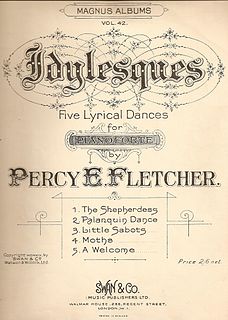 W
WPercy Eastman Fletcher was a British composer of classical music, born in Derby. He worked as musical director at London theatres including the Drury Lane Theatre and, from 1915 onward, His Majesty's Theatre. Besides, he wrote ballads, works for chorus, and suites for light orchestra, organ voluntaries for church use, as well as pieces commissioned for brass band competitions, including the tone poem Labour and Love used by the Irwell Springs Band to win the 1913 National Championships. This piece is often regarded as a significant moment in the development of the modern brass band movement and repertoire. It was followed by 'An Epic Symphony', used as the test piece for the Championship Section of the National Championships in 1926.
 W
WJohannes Wilhelmus "Willy" Hautvast was a Dutch clarinetist, composer and conductor.
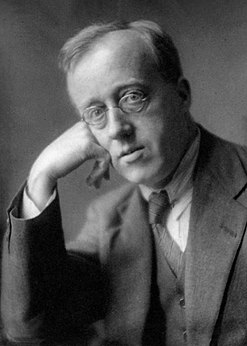 W
WGustav Theodore Holst was an English composer, arranger and teacher. Best known for his orchestral suite The Planets, he composed many other works across a range of genres, although none achieved comparable success. His distinctive compositional style was the product of many influences, Richard Wagner and Richard Strauss being most crucial early in his development. The subsequent inspiration of the English folksong revival of the early 20th century, and the example of such rising modern composers as Maurice Ravel, led Holst to develop and refine an individual style.
 W
WElgar Howarth, is an English conductor, composer and trumpeter.
 W
WHerbert Norman Howells was an English composer, organist, and teacher, most famous for his large output of Anglican church music.
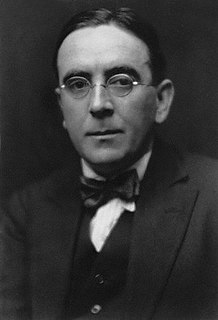 W
WJohn Nicholson Ireland was an English composer and teacher of music. The majority of his output consists of piano miniatures and of songs with piano. His best-known works include the short instrumental or orchestral work "The Holy Boy", a setting of the poem "Sea-Fever" by John Masefield, a formerly much-played Piano Concerto, the hymn tune Love Unknown and the choral motet "Greater Love Hath No Man".
 W
WGordon Langford was an English composer, arranger and performer. He is well known for his brass band compositions and arrangements. He was also a composer of choral and orchestral music, winning an Ivor Novello award for best light music composition for his March from the Colour Suite in 1971.
 W
WFrederik Reesen Magle is a Danish composer, concert organist, and pianist. He writes contemporary classical music as well as fusion of classical music and other genres. His compositions include orchestral works, cantatas, chamber music, and solo works, including several compositions commissioned by the Danish Royal Family. Magle has gained a reputation as an organ virtuoso, and as a composer and performing artist who does not refrain from venturing into more experimental projects – often with improvisation – bordering jazz, electronica, and other non-classical genres.
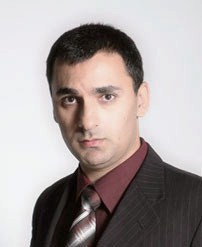 W
WEdward Manukyan is a composer from Southern California, United States. His main works are orchestral and chamber compositions, which lean heavily upon elements of Armenian national folklore.
 W
WJohn McCabe, was a British composer and pianist. He created works in many different forms, including symphonies, ballets, and solo works for the piano. He served as principal of the London College of Music from 1983 to 1990. Guy Rickards described him as "one of Britain's finest composers in the past half-century" and "a pianist of formidable gifts and wide-ranging sympathies".
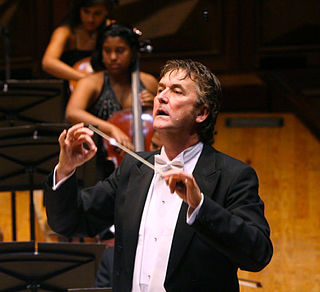 W
WJohannes Abraham (Johan) de Meij, born November 23, 1953, in Voorburg, Netherlands, is a Dutch conductor, trombonist, and composer, best known for his Symphony No. 1 for wind ensemble, nicknamed The Lord of the Rings symphony.
 W
WCapt. Ronald Edwin James "Ronnie" Milne was a singer and band director. He was also a composer and musical arranger who is known for his band arrangements and original compositions. He spent his formative years and the first years of his career in the United Kingdom. He subsequently auditioned to join the Canadian Army as a musician, was accepted in the rank of sergeant, and immigrated to Canada in 1953.
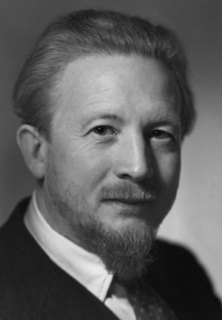 W
WEdmund Rubbra was a British composer. He composed both instrumental and vocal works for soloists, chamber groups and full choruses and orchestras. He was greatly esteemed by fellow musicians and was at the peak of his fame in the mid-20th century. The most famous of his pieces are his eleven symphonies. Although he was active at a time when many people wrote twelve-tone music, he decided not to write in this idiom himself. Instead he devised his own distinctive style. His later works were not as popular with the concert-going public as his previous ones had been, although he never lost the respect of his colleagues. Therefore, his output as a whole is less celebrated today than would have been expected from its sheer merit and from his early popularity. He was the brother of the engineer Arthur Rubbra.
 W
WSam Hjalmar Rydberg was a Swedish composer.
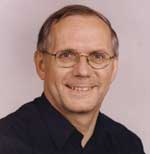 W
WPhilip Allen Sparke is an English composer and musician born in London, noted for his concert band and brass band music. His early major works include The Land of the Long White Cloud – "Aotearoa", written for the 1980 Centennial New Zealand Brass Band championship. He subsequently went on to win the EBU New Music for Band Competition three times, including in 1986 with a commission from the BBC called Orient Express,
 W
WLieutenant Colonel (Dr) Ray Steadman-Allen was a British composer of choral and brass band music for the Salvation Army and for band competition.
 W
WJames Swearingen is an American composer and arranger. He holds a Master’s Degree from the Ohio State University and a Bachelor's degree from Bowling Green State University and is Professor of Music Emeritus, Department Chair of Music Education at Capital University, Columbus, Ohio.
 W
WBramwell Tovey, is a British conductor and composer.
 W
WRalph Vaughan Williams was an English composer. His works include operas, ballets, chamber music, secular and religious vocal pieces and orchestral compositions including nine symphonies, written over sixty years. Strongly influenced by Tudor music and English folk-song, his output marked a decisive break in British music from its German-dominated style of the 19th century.